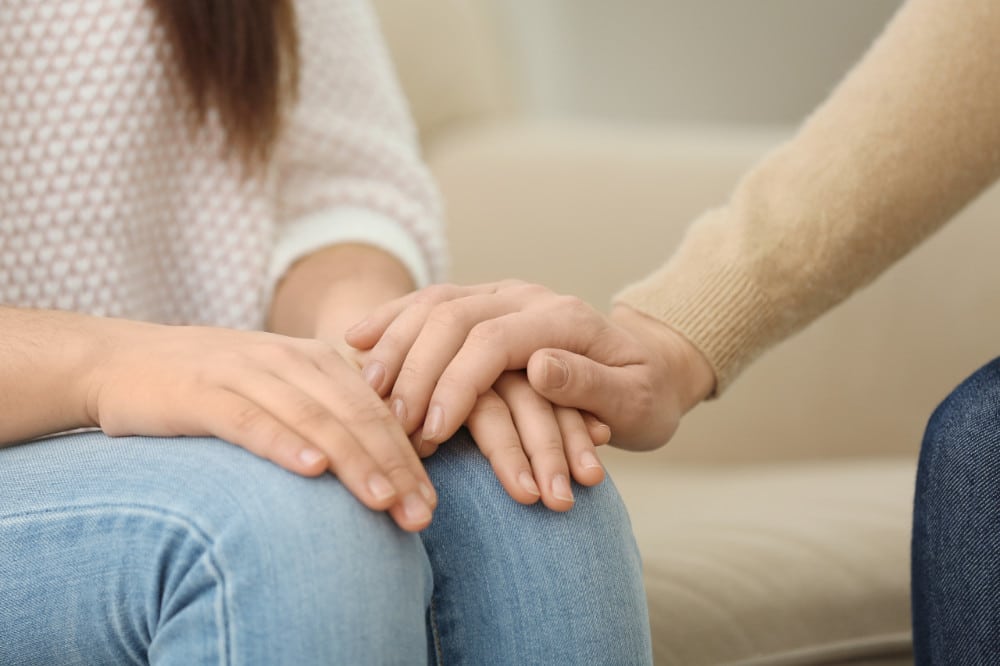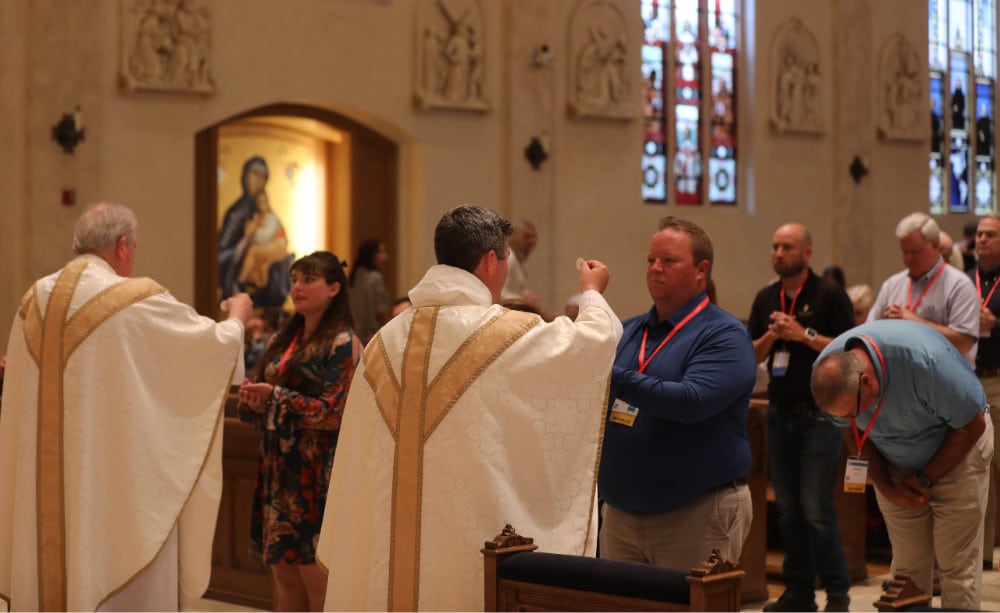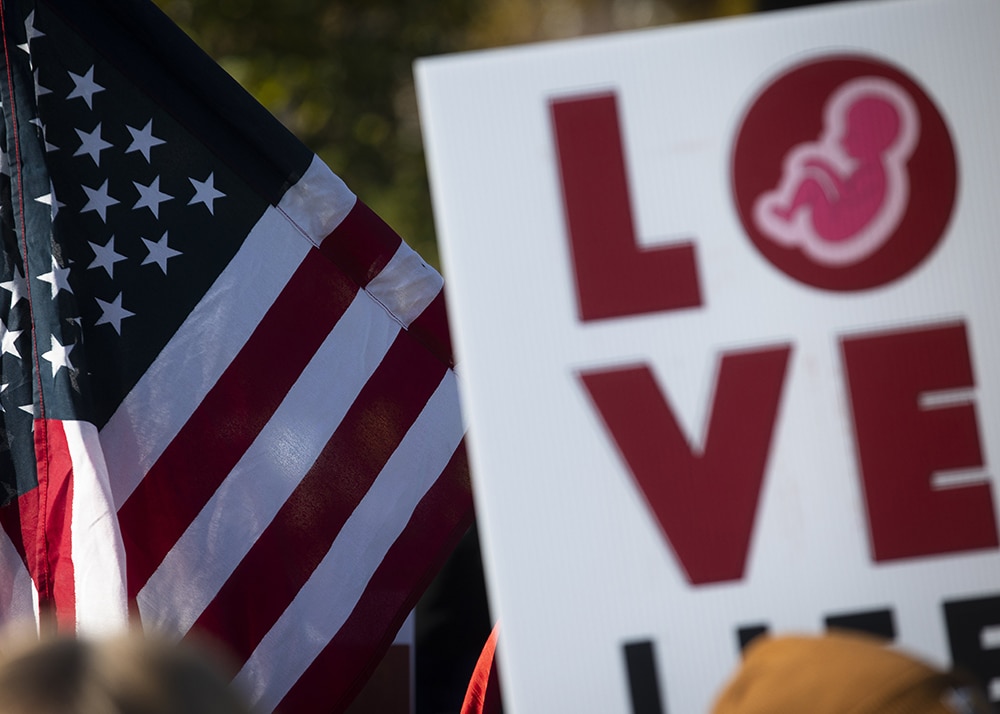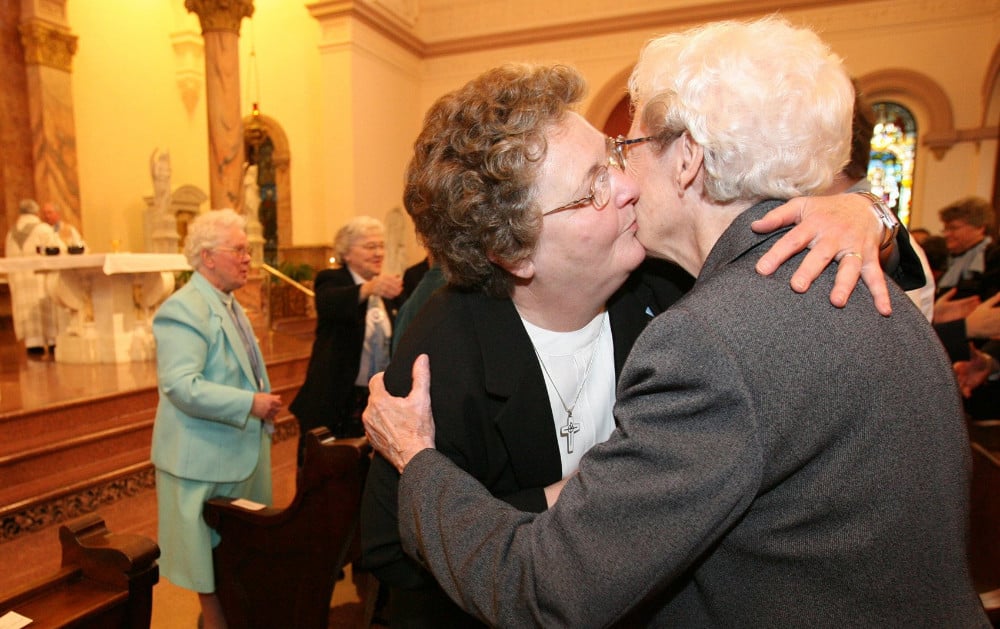 The fall of Roe v. Wade has brought with it an unleashing of demons. Arson attacks on churches — and going straight for the tabernacle. I’ve personally witnessed cries from the depths of hell with a litany of expletives and blasphemy. There are groups like the so-called Jane’s Revenge and Ruth Sent Us that seem to be fueled by a particular desire for violence, but in so many of the other reactions to the Supreme Court’s ruling in the Mississippi abortion case, there is such an outpouring of pain. Having the topic of abortion in the news every day can be salt poured into post-abortive wounds.
The fall of Roe v. Wade has brought with it an unleashing of demons. Arson attacks on churches — and going straight for the tabernacle. I’ve personally witnessed cries from the depths of hell with a litany of expletives and blasphemy. There are groups like the so-called Jane’s Revenge and Ruth Sent Us that seem to be fueled by a particular desire for violence, but in so many of the other reactions to the Supreme Court’s ruling in the Mississippi abortion case, there is such an outpouring of pain. Having the topic of abortion in the news every day can be salt poured into post-abortive wounds.
In a culture where the suggestion of abstinence is verboten, and girls are encouraged by all of the background music of their lives to use boys sexually in every way possible — or be used, of course — it sounds terrifying that abortion might not be readily available as birth control. Think of a girl who has seen her mother be used by men. She doesn’t want that to happen to her, but without education in virtue, she takes the advice of Rihanna — “So giddy up, time to giddy-up.” This publication doesn’t want me to repeat more of that song. But it’s important as we adjust to a life where the states are battling out how to deal with abortion, to recognize the real fears of women.
And recognize that politics is often not going to be our friend. A recent Washington Post piece talked about the Michigan governor fighting for abortion rights and talking with her daughters about it. One of her college-aged daughters says she is gay and yet is terrified that someone will force her to conceive. Others worry about forced birth in all seriousness.
The reality of life after Roe is that there is still abortion in America. In the same paper, though, there was also a story about a teenager in Texas who was too far along to have an abortion after the protections for the unborn were in place in September 2021. She and her boyfriend have beautiful twins now, and they are making it work, despite all the challenges that come with being young and without a ton of resources. But they found a pro-life center that would help them, thanks be to God. Some blessings come with having to grow up together with the responsibility of life, even if it is not the ideal order. Sometimes the media wants to convey one message and stumbles on a beautiful story that speaks to the unexpected wonder of a culture of life instead of death.
A profile of the Michigan governor and her girls featured the governor telling her daughters to delete the apps they had on their phones to track their cycles, offering help to get long-term contraception (I assume IUD), and the governor’s desire to get Canada to set up abortion clinics just over the border if abortion were banned in Michigan. The reporter happened to add that in the room where the governor’s security detail was, there was an Ouija board next to Tupperware. We need to stop messing with the dark side.
That particular governor was raped in college. When we encounter people in these post-Roe times, remember that their vehemence against protections for the unborn is probably tied to intimate pain. We’ll never be able to love without recognizing this. The post-abortive are all around us. Maybe it is your aching heart still. Dorothy Day, in the later years of her life, was still thinking of her abortion, even though she had received God’s mercy in confession for it. It’s not enough to be grateful that an unjust regime is no more. We have to love with a love that is in union with Jesus on the cross. It is the only way to move forward. It is how God wants us to be instruments of his healing in this world of the walking wounded.
Love!
Kathryn Jean Lopez is a senior fellow at the National Review Institute and editor-at-large of National Review.







